Seed Grantee Workshop 2025
6-7 May 2025On 6 and 7 May 2025, YELL organised a Seed Grantee Workshop to bring together 14 active projects funded under the YELL Seed Grant programme. The two-day workshop aimed to provide grantees with mentorship, physical networking opportunities, and peer-to-peer learning, fostering collaboration and capacity-building among grassroots environmental initiatives across Malaysia.
Throughout the workshop, participants engaged in interactive sessions led by invited experts on topics aligned with their ongoing projects, such as evaluating environmental education effectiveness, creating children’s storybooks, nature interpretation, gender mainstreaming, conservation game design, Free Prior Informed Consent (FPIC), and child safeguarding. Each session was structured in two parts: a presentation by speakers followed by hands-on group activities to enhance experiential learning.
.jpg)
Session 1: Exploring the Effectiveness of Environmental Education
Delivered by Dr. Evelyn Lim (UPM), this session clarified the difference between Environmental Education and Education for Sustainable Development, helping participants categorise their interventions accurately. Dr. Evelyn introduced methods to evaluate programme effectiveness beyond test scores, including assessments based on behavioural change, communication skills, and sustained interest in environmental stewardship.
Session 2: Tips on Starting with a Children’s Book Idea
Children’s book author Teoh Choon Ean and retired publisher Filzah Ibrahim shared insights on producing engaging children’s storybooks, highlighting the differences between writing for children and adults. Grantees later presented their own educational materials for feedback, learning how to make content more effective and appealing for younger audiences.
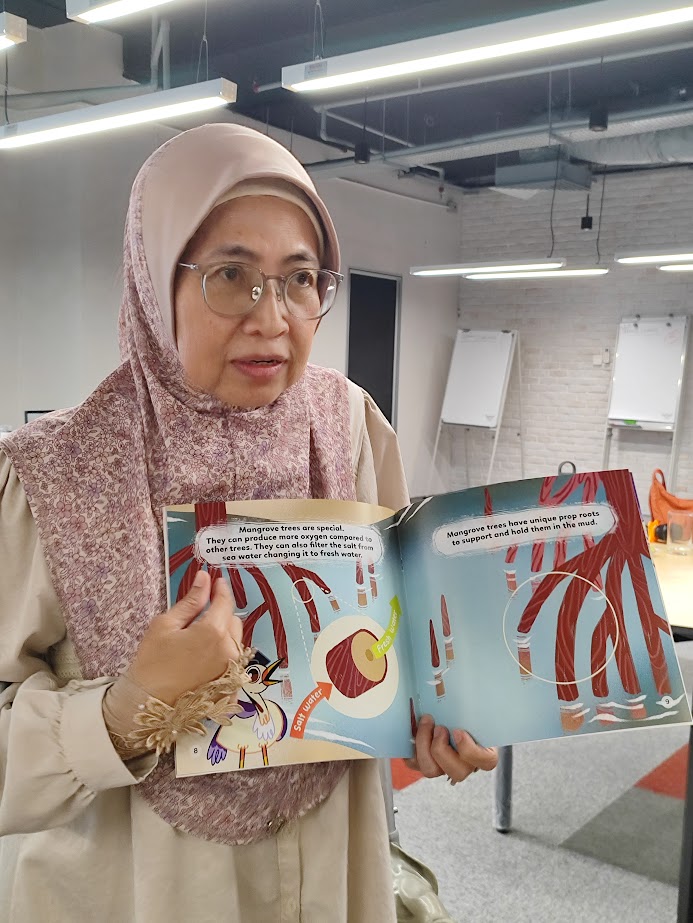
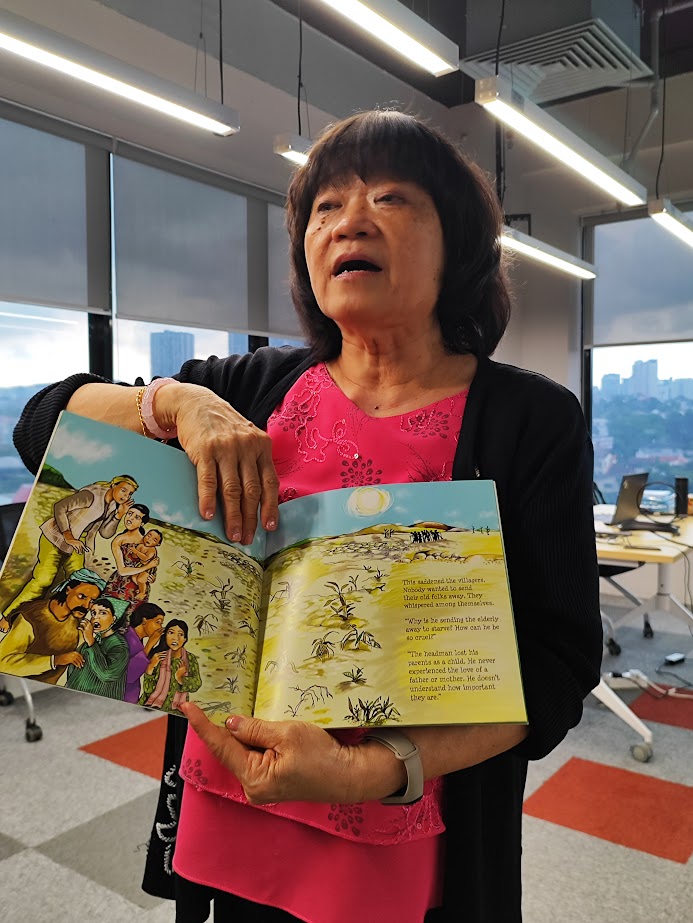
Filzah Ibahim (left) and Teoh Choon Ean (right) (YELL, May 2025)
Guided Night Walk at Rimba Ilmu Botanical Garden
A guided night walk provided participants with a field learning experience in nature interpretation and public engagement. Participants observed how guided activities could be designed to communicate scientific information in interactive and meaningful ways while strengthening connections with nature and fostering networking among grantees.
Session 3: Nature Interpretation
Building on the night walk, Syuhada Sapno emphasized that interpretation is more than information sharing. In fact, it is about storytelling and emotional connection that inspires people to protect the environment. Examples of interpretive techniques were demonstrated to help grantees enhance public engagement in their own projects.
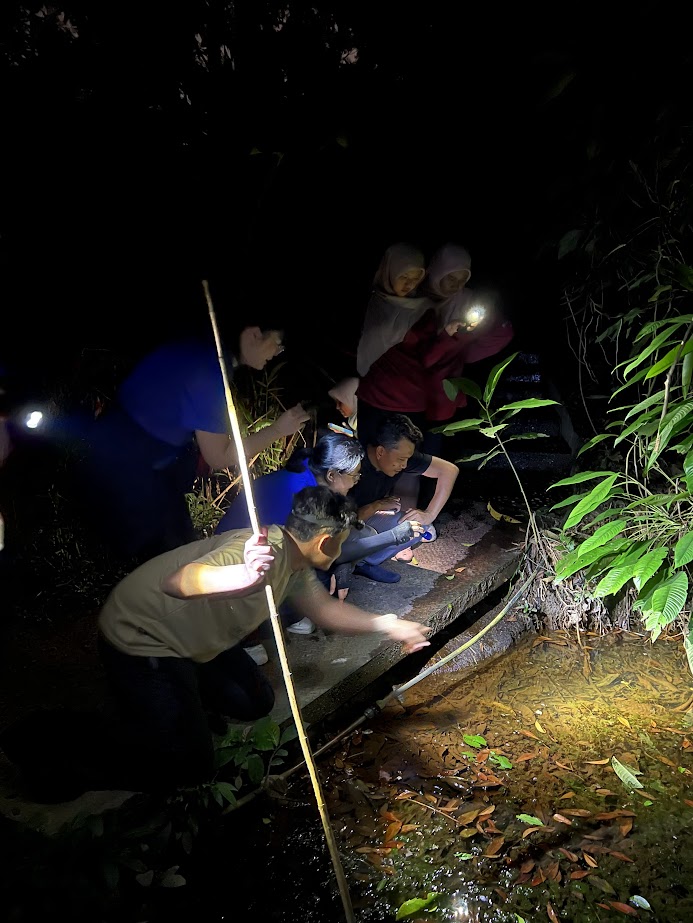
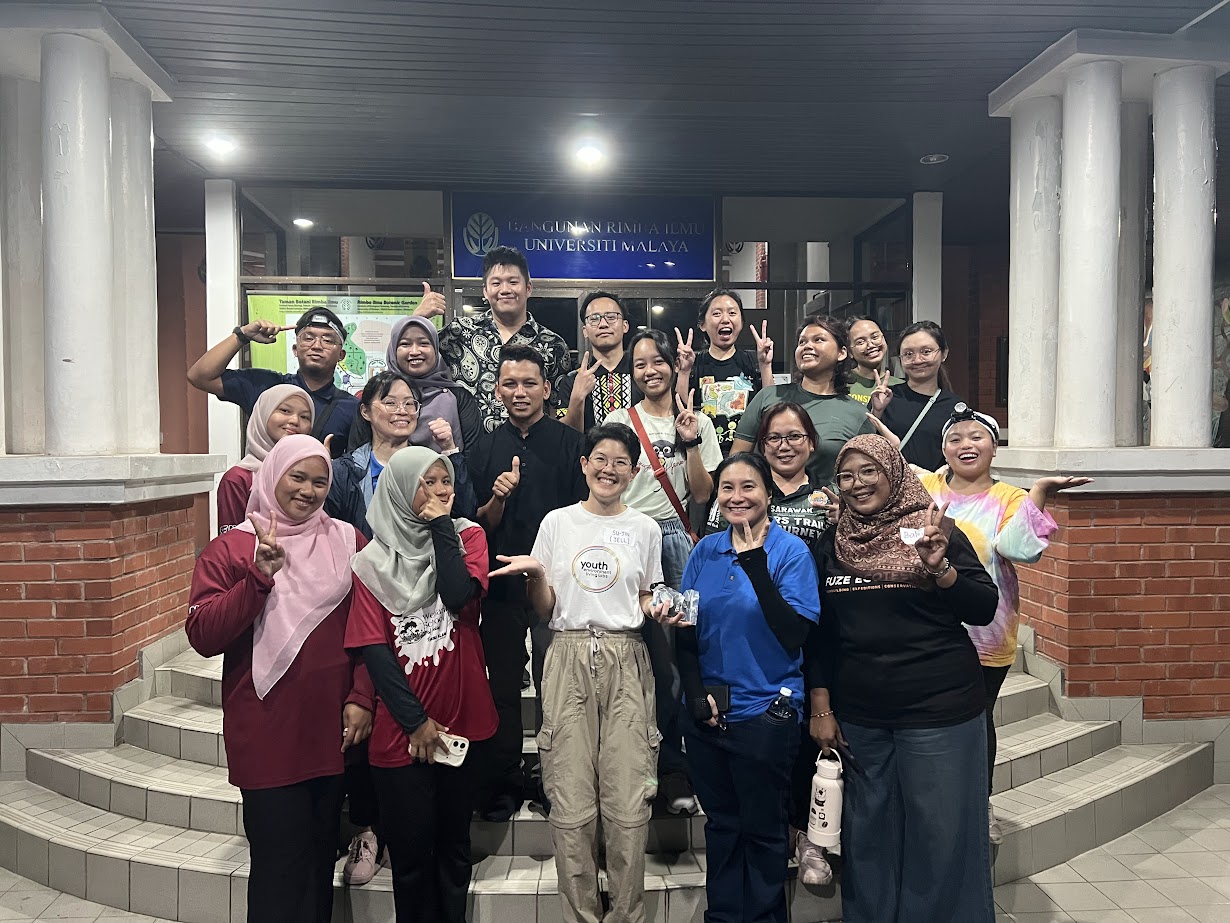
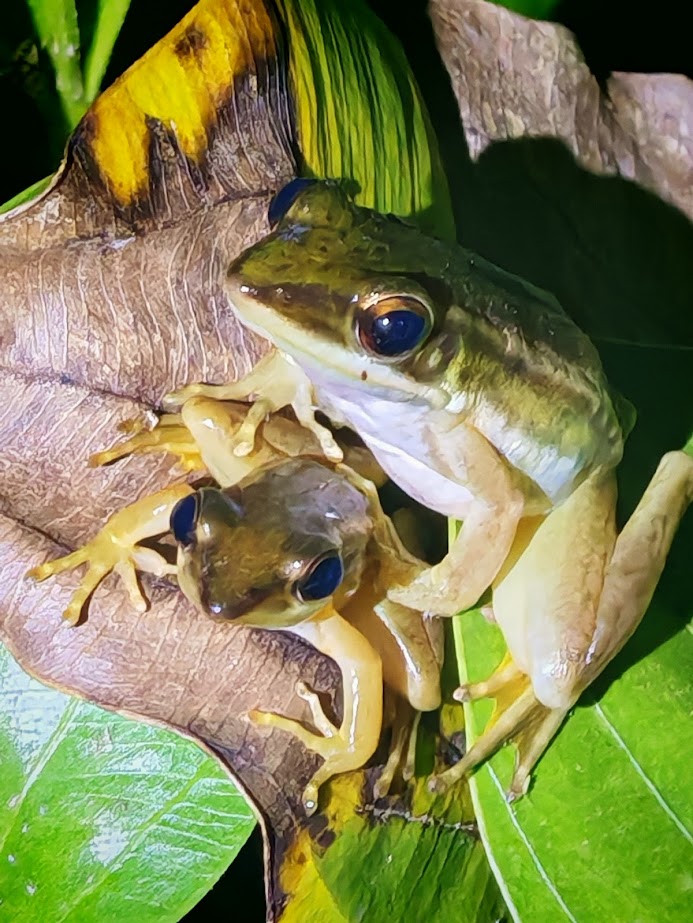
Participants during their nature night walk (YELL, 2025)
Session 4: Gender Mainstreaming
Dr. Rusaslina Idrus introduced gender concepts and their importance in inclusive project design. Through group exercises, participants applied gender analysis to project scenarios, gaining a practical understanding of how gender mainstreaming supports equitable and sustainable development outcomes.
Session 5: Creating Games for Conservation Education
Led by Dr. Cedric Tan, this session was highly interactive, introducing the principles of educational game design for conservation learning. Grantees developed prototype games using random household items, promoting creativity and hands-on understanding of gamified education tools.
Session 6: Free Prior Informed Consent (FPIC) & Child Safeguarding
In the first part, YELL Project Manager Cheng Cheng Tan explained FPIC as a UNDP-endorsed framework ensuring meaningful and informed community participation in project decision-making. In the second part, YELL Project Coordinator Su-Jin Lim discussed child safeguarding and shared guidelines on protecting children’s rights and wellbeing during grantee-led activities.
Dr. Rusaslina Idrus introduced gender concepts and their importance in inclusive project design. Through group exercises, participants applied gender analysis to project scenarios, gaining a practical understanding of how gender mainstreaming supports equitable and sustainable development outcomes.
Session 5: Creating Games for Conservation Education
Led by Dr. Cedric Tan, this session was highly interactive, introducing the principles of educational game design for conservation learning. Grantees developed prototype games using random household items, promoting creativity and hands-on understanding of gamified education tools.
Session 6: Free Prior Informed Consent (FPIC) & Child Safeguarding
In the first part, YELL Project Manager Cheng Cheng Tan explained FPIC as a UNDP-endorsed framework ensuring meaningful and informed community participation in project decision-making. In the second part, YELL Project Coordinator Su-Jin Lim discussed child safeguarding and shared guidelines on protecting children’s rights and wellbeing during grantee-led activities.
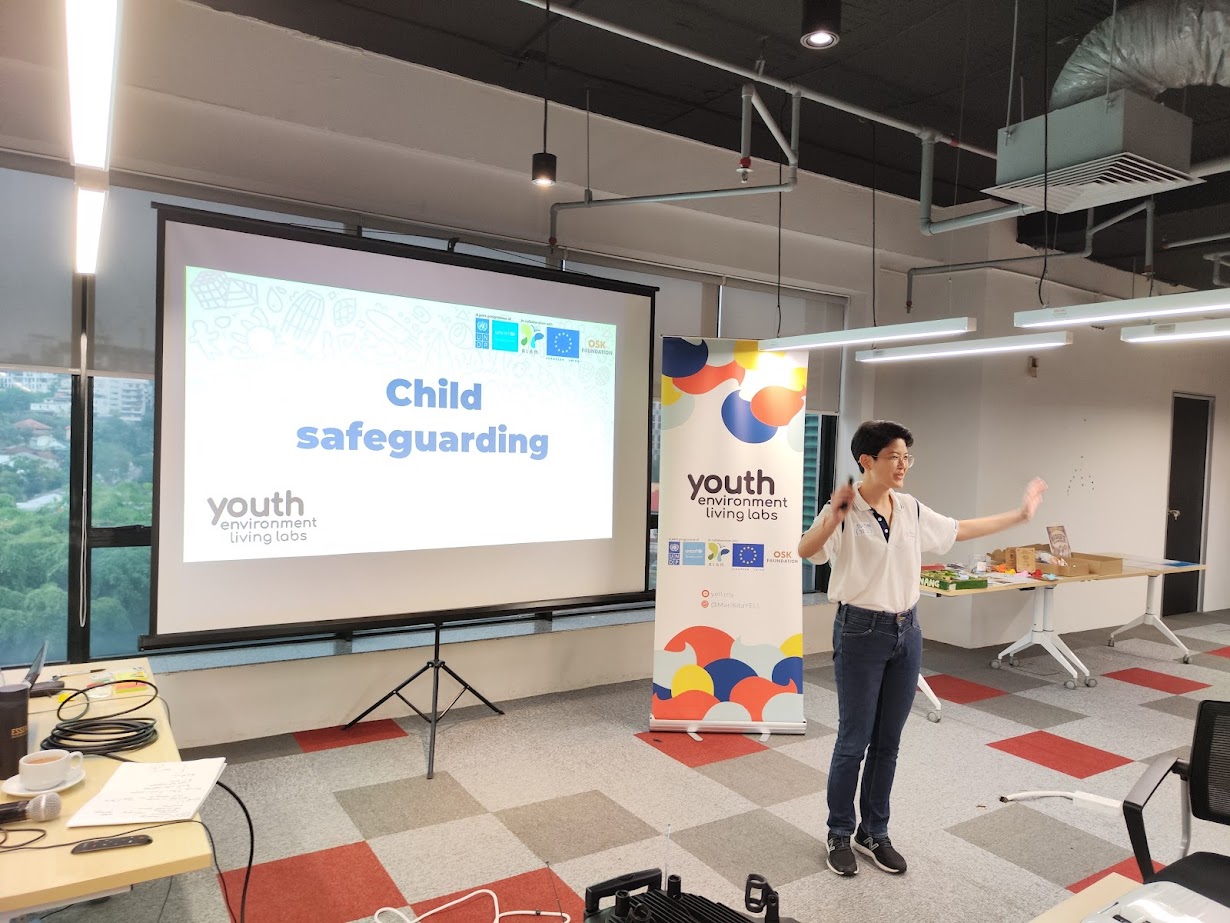
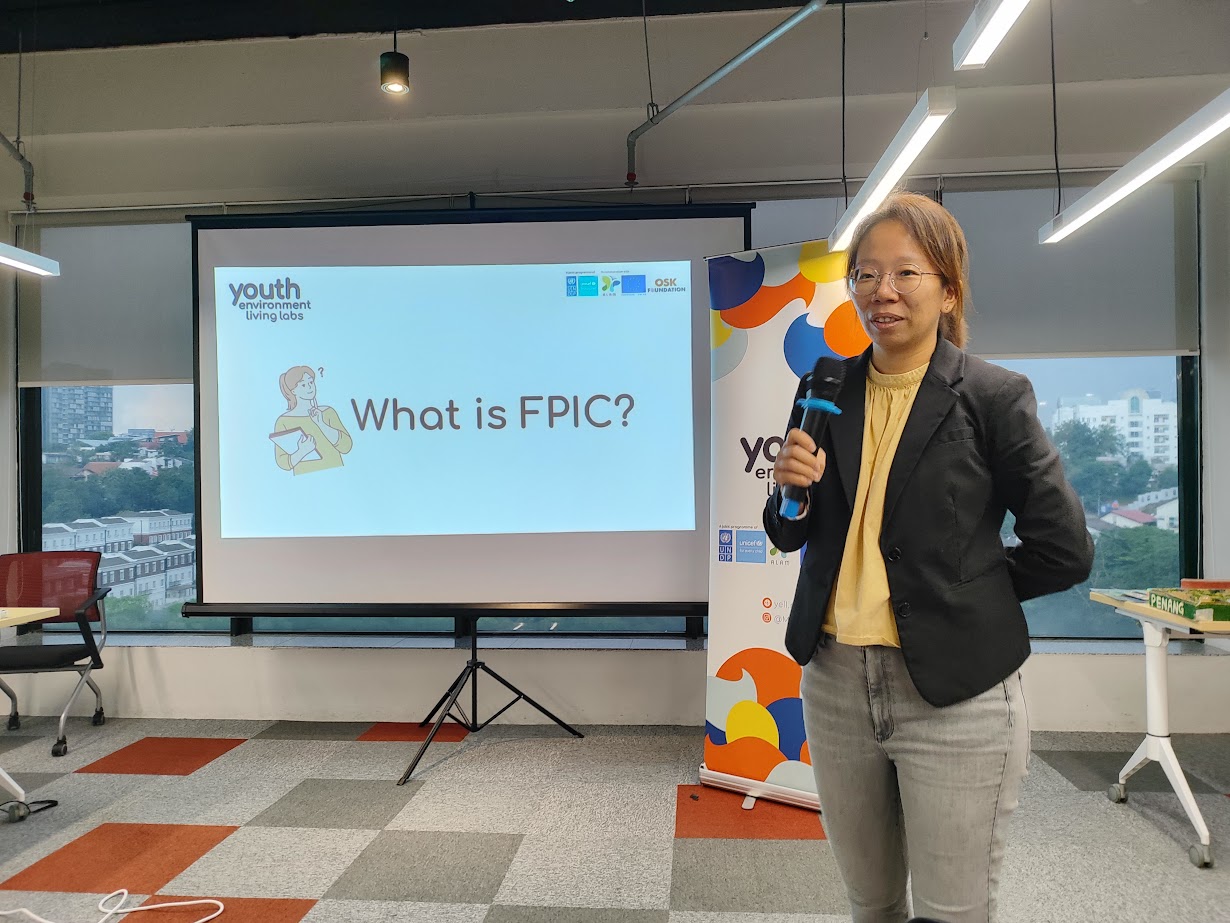
Su-Jin Lim (left) and Cheng Cheng Tan (right) (YELL, May 2025)
Overall, participants displayed strong enthusiasm, actively sharing experiences, challenges, and insights. Many were observed collaborating informally, offering peer support, and exchanging contact information to foster future partnerships. The workshop successfully strengthened the YELL grantee network, deepened participants’ technical and conceptual understanding of sustainable project design, and empowered grantees to apply new tools and perspectives in advancing their environmental education and conservation initiatives.
We use cookies and other identifiers to help improve your online
experience. By using our
website you agree to this.
To learn more, including how to change your settings, see our Cookies Policy.
To learn more, including how to change your settings, see our Cookies Policy.
